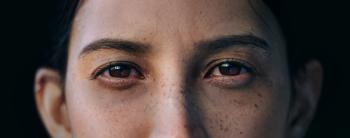
Unmasked: Face to Face with the Trauma Story
While recovering from trauma, survivors have a chance to find a voice, meaning, and even beauty.
COMMENTARY
As a psychiatrist for over 10 years, I have had the privilege of bearing witness to a great deal of human suffering.
The current pandemic has shown us, mental health professionals, the dire consequences of human disconnection and social isolation. Humans do not do well alone. We need to bond with others, and we need to feel seen, heard, touched, and loved, not only to thrive, but also to survive.
It seems that COVID-19 has taken the mask off the tip of a huge iceberg. It has forced us to come face to face with a profound challenge. We might not be able to heal trauma, but the process of facing trauma can itself become the source of light, delight, and healing.
Many trauma survivors continue to go through the revolving door of a broken system. This is in part because many therapists are not comfortable listening to painful traumatic and graphic details.
I owe it to my clients and trauma survivors worldwide to be ready to listen when they are ready to share. I focus on these seven themes in my model, which I call Trauma Heals:
- Finding safety: the focus is on fostering hope and faith
- Finding a voice: building safe spaces and giving people permission to talk
- Finding meaning: regaining the shattered core beliefs that the world is a safe place and others can be trusted, and realizing that they are not broken because of the trauma they endured
- Finding forgiveness: unconditional self-forgiveness (making and receiving amends), knowing that they have done their best given the circumstances
- Finding healing: harnessing resilience through self-care and altruism (offering grace through acts of kindness and community service)
- Finding closure: mourning past relationships and redefining or reconstructing new ones
- Finding beauty: integrating the trauma story, finding beauty in one’s self, family, others, humanity, and the world
My beloved mentor, professor Richard Mollica of the Harvard Program for Refugee Trauma, taught me to search for beauty in every interpersonal encounter, and my late mother left me with her last words: “if you cannot be the source of someone’s joy and delight, don’t be the source of their pain and distress.” Love does indeed heal even the most extreme of traumatic stories.
Dr Reda is a Practicing Psychiatrist, Providence Healthcare System, Portland, OR. He reports no conflicts of interest concerning the subject matter of this article.
Newsletter
Receive trusted psychiatric news, expert analysis, and clinical insights — subscribe today to support your practice and your patients.







